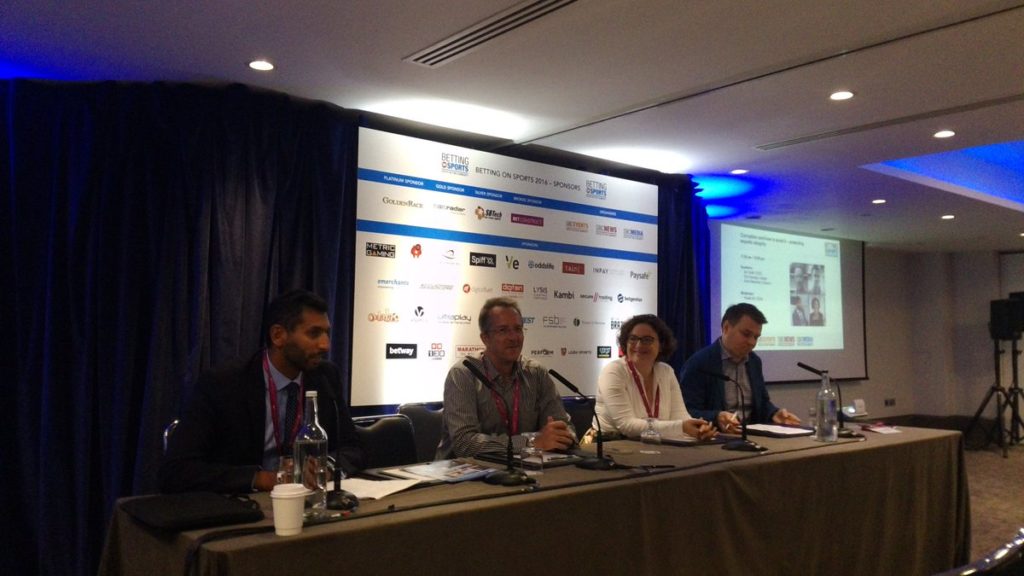
The theme of a need for more education was the underlying one at the talk on ensuring esports integrity at last week’s Betting on Sports Conference in London.
Esports Integrity Coalition Commissioner Ian Smith stated: “ESIC launched back in July but we’ve been active since October 2015. We’re in process of developing an educational program with Sportradar.
“The problem with regulation is that it’s expensive and time consuming. The risks in the esports community are not too well understood…sure, everybody wants integrity but hardly anybody is keen to pay for it.”
He continued: “Education needs to expand quickly and rapidly. In ESL One in New York we’ll work more on this, but in Oakland we’ll be doing live face to face stuff.”
The panel moderator was Khalid Ali of ESSA and Ali asked the speakers about the recent UKGC report on esports. Unibet’s Eric Konings stated: “It’s getting the balance right between encouraging growth and ensuring the correct and necessary regulations are in place.”
Smith added: “The biggest thing for regulators is upskilling and increasing education.”
Other issues affecting esports integrity were also discussed. This included player protection, and Anna Baumann, an esports lawyer from Esyncd, made an insightful point about player poaching. She said: “League of Legends does not allow player poaching during a season. In Dota 2 and CS:GO you don’t (yet) have this kind of regulation.This creates a highly volatile space with unreliability and a lot of player movement.”
Another point that was debated was to do with some of the industry’s reluctance to accept and embrace regulated betting. Baumann said that from Riot’s point of view this is understandable as League is more targeted towards a younger demographic, and as such Riot Games does not allow betting firms to sponsor teams.
Ian Smith said: “Of course, as a publisher you can make betting extremely unreliable by limiting access to data but of course you want an audience, and betting expands this potentially considerably.”
Smith also said that he spoke to a publisher last year who confidently asserted that they do not allow betting on their games, but in Smith’s words “that’s like saying I’m not going to allow the sun to rise tomorrow”.
Game developers are unable to prevent betting on their games, and as such it’s important that the esports industry finds a way to foster a two way relationship with the regulated gambling industry in order to protect all parties involved to the fullest extent possible.
A final takeaway from Ian Smith, who has worked in sports integrity for over two decades, was that despite the widespread criticisms aimed at esports in general from an integrity perspective they’re no worse than traditional sports.
He said: “I’d certainly agree esports are no worse on integrity than traditional sports but how how bad are traditional sports?”

